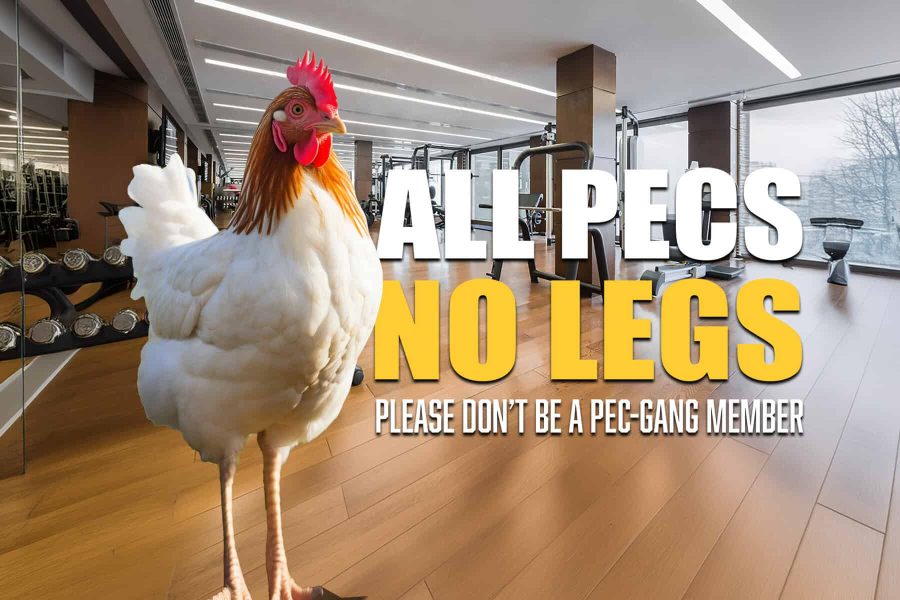Debunking the BMI

We’ve all been there. You step on the scale, hold your breath, and see a number staring back that might leave you feeling confused, frustrated, or even defeated. That number? Your Body Mass Index, or BMI. But before you let this metric dictate your mood, let’s delve into the truth behind the BMI and explore why it might not be the most accurate measure of health, especially for fitness enthusiasts.
A Brief History of the BMI: Not Designed for You (Literally)
Believe it or not, the BMI wasn’t even created to assess individual health. In the 1830s, a Belgian mathematician named Lambert Adolphe Jacques Quetelet devised a formula to analyze weight patterns across entire populations, not for individual diagnoses. This formula, later dubbed the Body Mass Index, simply divided a person’s weight by the square of their height.
So, What’s the Problem with BMI? It Doesn’t Tell the Whole Story
While the BMI can be a starting point for a conversation about weight and health, it falls short in many ways, especially when it comes to fitness. Here’s why:
Muscle Mass Matters (But BMI Doesn’t): Muscle is denser than fat, meaning a person with a high percentage of muscle mass could have a high BMI despite having a lean physique. This can be particularly misleading for athletes and weightlifters who often carry significant muscle mass.
Body Composition is Key (and BMI Ignores It): The BMI doesn’t differentiate between fat, muscle, bone, or water weight. Someone with a larger bone structure, for instance, might have a higher BMI without being overweight.
Ethnicity Plays a Role (But BMI Doesn’t Recognize It): Healthy weight ranges can vary slightly depending on ethnicity. The BMI uses a one-size-fits-all approach, which can be inaccurate for certain populations.
The Mirror Might Be a More Accurate Reflection (Literally)
Instead of obsessing over a number on the scale, consider a more holistic approach to health:
Here are some alternatives:
The Mirror Test: Step in front of the mirror and assess how you feel in your clothes. Do you have energy for your daily activities? Does your body feel strong and capable? This self-assessment can be a powerful indicator of overall well-being.
Focus on Body Composition: Bioelectrical impedance analysis (BIA) scales can provide a more detailed breakdown of your body composition, including muscle mass and fat percentage. While not a perfect measure, it offers a more nuanced picture than BMI alone.
Listen to Your Body: This might sound simple, but it’s crucial. Are you feeling sluggish and tired? Do you have aches and pains? Your body is sending you signals – pay attention to them!
Building a Sustainable, Healthy Lifestyle (Because Crash Diets Don’t Last)
Let’s ditch the focus on a single number and move towards creating a healthy lifestyle that supports your long-term well-being:
Here are some tips:
Find Activities You Enjoy: Exercise shouldn’t feel like punishment! Explore different activities like running, swimming, dancing, or weightlifting, and find something you genuinely have fun doing.
Nourish Your Body with Real Food: Focus on whole, unprocessed foods like fruits, vegetables, lean protein, and whole grains. Ditch sugary drinks and processed snacks for long-lasting energy and optimal health.
Prioritize Sleep: Aim for 7-8 hours of quality sleep each night. Sleep is essential for muscle recovery, hormone regulation, and overall well-being.
The Takeaway: Embrace Your Body, Celebrate Your Journey (and Maybe Ditch the Scale)
The BMI might be a convenient metric, but it doesn’t tell the whole story. Focus on building a healthy lifestyle through a balanced diet, regular exercise, and self-love. Celebrate your progress, big or small, and remember, health is a journey, not a destination. So, ditch the limitations of the BMI, embrace your unique body, and get ready to feel your best!
Q&A:
Q: But Won’t I Gain Weight if I Build Muscle?
A: Absolutely! But here’s the good news: muscle is metabolically active, meaning it burns more calories at rest than fat tissue. So, while the scale might show a slight increase due to muscle gain, you’ll likely be getting leaner and stronger overall. Focus on how your clothes fit and how you feel rather than the number on the scale.
Q: Okay, Fine. I’ll Ditch the Scale, But What About Setting Goals? Don’t I Need a Number to Track Progress?
A: Absolutely! Setting goals is crucial for staying motivated. However, instead of focusing solely on weight loss, consider setting S.M.A.R.T. goals that are Specific, Measurable, Achievable, Relevant, and Time-bound. For example, you could aim to run a 5K in 6 months, increase your squat weight by 10 pounds in 3 months, or improve your push-up form. These goals are specific, measurable, and celebrate your strength and endurance, not just a number on the scale.
Q: Isn’t There Anything the BMI Can Tell Me?
A: While the BMI isn’t perfect, it can be a starting point for a conversation about weight and health, especially if you have concerns. If your BMI falls into the “obese” category, it might be a good idea to consult a doctor or registered dietitian to discuss your overall health and create a personalized plan.
Remember:
The BMI might be a relic of the past, but your body is a force to be reckoned with. Use it, challenge it, and celebrate its unique strengths. The mirror might be your reflection, but you are the one in control. So, ditch the limitations of the BMI, embrace a more holistic approach to health, and get ready to conquer your fitness goals, one step (or lunge) at a time!
Focus on Progress, Not Perfection: Building a healthy lifestyle takes time and effort. Don’t get discouraged if you don’t see results overnight. Keep at it, and you will reach your goals.
Celebrate Non-Scale Victories: Did you finally master that challenging yoga pose? Did you cook a healthy meal from scratch? Celebrate these wins! They are all part of your health journey.
Listen to Your Body: Rest when you need to, and don’t push yourself to the point of injury. Your body is a powerful tool, treat it with respect.
The Final Word: Your Body is a Badass Machine, Own It!
#DitchTheScale #EmbraceTheMirror #HealthJourney #LoveYourBody
P.S. Still feeling a little lost? Don’t hesitate to consult a certified personal trainer or registered dietitian. They can help you create a personalized plan that takes into account your individual needs and goals. Now get out there, explore different activities, and remember, you are more than a number on a scale!



